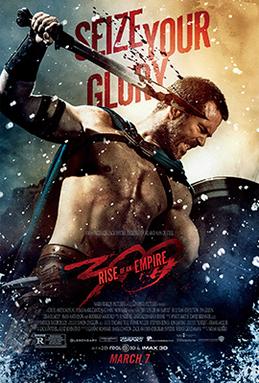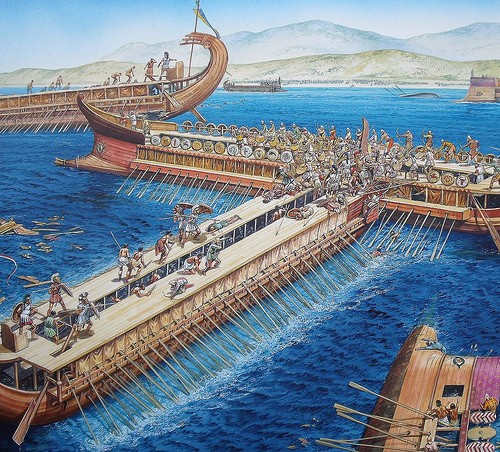However, I believe that no matter what genre a writer steps in to he/she is going to be soapboxing or at least pushing some of their ideology into the work. This can be because of their world view, their opinion on a certain subject, or more importantly, how they perceive the world around them, which always colors an authors work no matter how much they may try to avoid it.
The being said there are some who soapbox more than others.
I've read a large number of books which wax on philosophically about their authors personal beliefs or the way the world ought to work in their eyes. In fact a large number of them can even be entertaining in spite of the heavy handed anvil which the author drops on your head. A good example of a decent soapbox would be Michael Z. Williamson's Freehold, which is basically a libertarian screed on everything from war, to nudism. While finding many of the political positions and parts of the philosophy utterly absurd, the story they were wrapped in made it all so fascinating. The characters had some depth to them and weren't simply walking mouthpieces for the ideology and had quirks and flaws of their own. Not War and Peace but still some fun popcorn reading that you can sit back and enjoy.
Now as a counterpoint to that of course is a book written completely as an ideological rant. Atlas Shrugged being the go to example, but I'd like to cite a book I reviewed waaaay back when, is a truly terrible book called Enemies Foreign and Domestic by Mathew Bracken. While Atlas Shrugged is a bloated book that wallows in its own self-importance this book is taken by the author as both a realistic expression of the world at large and a wonderful example of how to cram lots of hate speech into one novel, then build a trilogy around it. Basically it's an authors anger filled rant against society and how evil his political opposites are. The characters are flat, rather boring and two dimensional, and the villains are such thin cardboard cut outs it doesn't even merit calling them caricatures. In short it is every example of how not to write a novel.
Not to sound like I'm picking on the right wing here's a left wing ideological spout called Christian Nation which in short is about how American right wing Christians are secretly plotting to install a theocracy in America and undermine it's Constitution and the march of progress. Basically it's an excuse for the author to cry wolf and talk about the evil religious people he doesn't like. It makes about as much sense as Enemies but is probably less offensive to the average person in its insanity. The characters there too are flat, shallow, and two dimensional and the work again wallows in its own self-importance about the message it is delivering while spooning out a heavy dose of cultural/intellectual elitism that is distinctly uncomfortable.
Now here I've just been highlighting the worst examples of soapboxing in fiction, when there are in fact excellent examples that can be found which don't bludgeon you over the head with the ideas and ideology that don't go out of their way to offend you. In stark counterpoint to the previous work you have Margaret Atwood's The Handmaid's Tale a deep and emotional piece which caricatures the extreme right wing beliefs of Christian Fundamentalists. You also have George Orwell's 1984 which is a piece taking totalitarianism to its logical extreme. Each of these pieces is a masterpiece of the genre and rightly so.
This isn't just in books written as political tracts though. In fantasy you have men like Brandon Sanderson who insert their own beliefs on human nature into their works by how the characters themselves act and view the world, and it balances out well between the heroes and the villains who all have deep three dimensional reasons for their actions. Then you have someone like Terry Goodkind who, although he writes arguably some fantastic work, can let his own political agenda seep in at inopportune moments. Though he is still an excellent writer. As fun as Richard is, it can be rather distracting when he gets caught up in a situation where he has to deliver a rant on why organized sports is stupid[2].
To that end I would just like to point out it isn't a bad thing to let your beliefs influence your work. It's probably impossible for you to not let them influence it. However, there is a way you can do it that it will stand out as a classic versus a heap of unintelligible garbage that only a few radicals will ever appreciate. Your story, as always, takes precedent over your ideological views, and it has to be a story that manages to flow with your ideology. The ideology should guide the story, not take it over.
It's possible that someone with some unorthodox beliefs out there might have the next 1984 in the making, but they just can't find a way to get their Winston to not be a cardboard cut out with human emotions and desires because they can't think how that interacts with their ideology. My advise is think of the human element first, and the ideological element second. If you can't find a rational way to have people react to your ideology or philosophy, then it's probably not one humans are capable of adhering to anyways.
========
[1] David Weber FAQ's: How close are the parallels in the Honorverse politics and our present day politics?
[2] No really this is actually part of the plot in the book Confessor. Even if it is sort of a blood sport.








